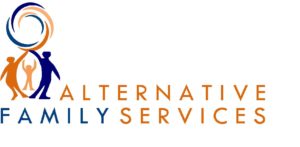Understanding AFS’s Community-Based Services Model for Supporting Youth and Families
Here at Alternative Family Services, we use a community-based services model as one option to support the varying needs of the youth and families we work with throughout northern California. Let’s explore the meaning of community-based services and why we utilize this approach as one of our therapeutic models.

Here at Alternative Family Services, we use a community-based services model as one option to support the varying needs of the youth and families we work with throughout northern California.
Community-Based Services Explained
Depending on the AFS services a client is receiving, AFS staff members (mental health clinicians, social workers, etc.) may choose to meet with youth and families at a resource or biological family home, within a school-based setting or a convenient location in the community such as a park. These locations are considered “community-based” which differs from a clinical or office setting. Compared to an office setting, community-based environments often provide a more realistic and relaxed environment to engage in therapeutic work with youth and families.
In the past, this kind of work was seen as being analogous to wraparound services, wherein the goal is to serve all the needs of the client or family in question. Here at AFS, we view community-based services as a key component to a strength-based intervention, which aims to ensure that those we serve see themselves “as resourceful and resilient when they are in adverse conditions.”
A significant amount of AFS staff who are working with clients involved in the foster care system provide community-based services. Alternatively, there are cases that require care at either an AFS office location or via telehealth. AFS staff will often structure supportive, non-judgmental visits for mental health services such as individual and family therapy in addition to therapeutic visitation at The Gathering Place in Oakland or Pleasanton.
Benefits of Community-Based Services
There are a few key reasons why AFS utilized community-based services.
For one, youth and families are likely to be much more comfortable in a setting they know, as opposed to an unfamiliar one like a therapist’s office. When clients are comfortable and engaged, AFS staff are in a better position to understand them and their needs.
It also helps AFS staff to assess where stressors are for clients. By visiting and meeting with youth and families in their homes, schools and communities we can understand their real-life challenges so adequate and appropriate support is being provided.
From a logistics point of view, it is often much easier to meet with clients in their home, as opposed to asking them to travel to an office or other external setting. It is for this reason that we have begun offering telepsychiatry services in Alameda County.
Although AFS staff frequently travel to different homes throughout our Northern California locations, it has been demonstrated that community-based care provides increased success rates of healing trauma and keeping families together. This approach ensures AFS provides more effective and more holistic services to the youth and families we work with every day.
Interested in learning more? Head to https://www.afs4kids.org/services/mental-health-services/ for more details about our approaches and philosophy.
